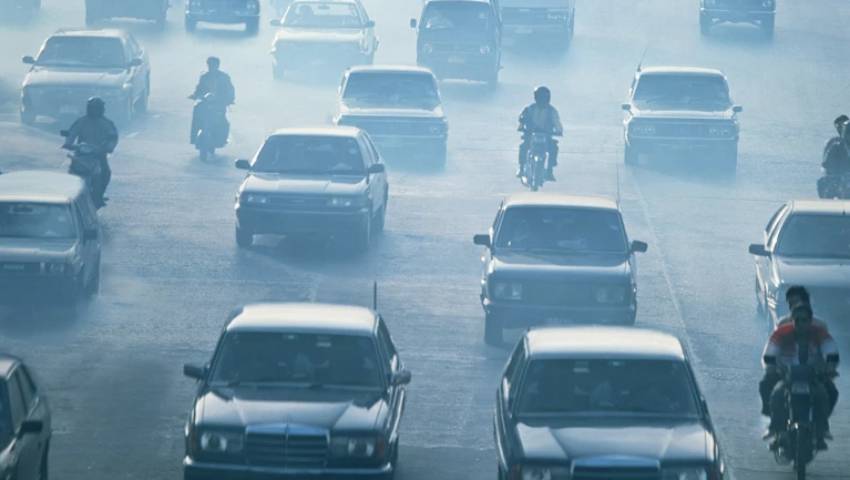
- 13/05/2023
- Dr. Pratik Patil
- 0 Comments
- Blog
How air pollution causes lung cancer — without harming DNA
Air pollution could cause lung cancer not by mutating DNA, but by creating an inflamed environment that encourages proliferation of cells with existing cancer-driving mutations, according to a sweeping study of human health data and experiments in laboratory mice.
The results, published in Nature on 5 April, provide a mechanism that could apply to other cancers caused by environmental exposure — and might one day lead to ways to prevent them. “The idea is that exposures to carcinogens could promote cancer without actually doing anything to the DNA,” says Serena Nik-Zainal, a medical geneticist at the University of Cambridge, UK. “Not every carcinogen is a mutagen.”
Cancer-causing pollution
Air pollution causes millions of deaths worldwide each year, including more than 250,000 from a type of lung cancer called adenocarcinoma. But it has been difficult to investigate how air pollution triggers cancer, in part because its effects are less pronounced than those of better-studied carcinogens such as tobacco smoke or ultraviolet light, says Nik-Zainal.
To unpick the mechanism, cancer researcher Charles Swanton at the Francis Crick Institute in London and his colleagues mined environmental and epidemiological data from the United Kingdom, Canada, South Korea and Taiwan. To diminish the contribution of tobacco smoke to the data, the team focused on lung cancers that carried mutations in a gene called EGFR. These mutations are more common in lung cancers in people who have never smoked than in those in smokers.
The team found that lung cancers bearing EGFR mutations were associated with exposure to air pollution in the form of inhalable particles with a diameter of 2.5 micrometres or less — less than one-tenth the width of the average grain of pollen. Such pollution is emitted by internal combustion engines, coal-fired power stations and burning wood.
To learn more, the team engineered laboratory mice to carry an EGFR mutation associated with human cancer. Mice exposed to particles similar to those found in air pollution were more likely to develop lung tumours than were control mice that were not exposed.
But despite the higher rates of lung cancer, the mice did not show an increase in the number of mutations in their lung cells. Instead, there were signs of a sustained inflammatory response that lasted for weeks after the particle exposure. Some of the immune cells that flocked to the lungs expressed an inflammation-promoting protein called IL-1β. Treating mice with an antibody that blocks IL-1β reduced their incidence of lung cancer.
Taken together, the results suggest that air pollution fosters the proliferation of mutated cells that already exist in the lung, potentially as a consequence of DNA errors that accumulate during ageing. “The major mechanism by which air pollution causes cancer is not due to the induction of new mutations,” says Allan Balmain, a cancer researcher at the University of California, San Francisco. “It’s that sustained inflammation that becomes chronic that is essential to get these mutated cells to grow into tumours.”
Previous studies have found that cells carrying mutations associated with cancer are sometimes found in healthy tissue. Swanton and his collaborators looked at the frequency of EGFR mutations in non-cancerous lung tissue and found that they were present in about one in every 600,000 cells. “They’re there,” said study co-author Emilia Lim, a cancer genomicist at the Francis Crick Institute, at a press briefing. “They’re rare, but they do exist.”
Preventive Measures:
The lung cancer findings mesh with previous results from Balmain and his collaborators, who tested 20 known or suspected human carcinogens and found that most of them did not increase the number of DNA mutations in mice. There is a growing awareness that cancer-promoting substances need not work by directly altering DNA sequences, says Balmain, and his lab is working to develop tests for carcinogens that don’t rely on looking for new mutations.
The question then becomes how to keep mutation-carrying cells from being activated by environmental factors such as air pollution. With millions of people exposed to high levels of air pollution, it is not feasible to treat all of them with IL-1β-blocking drugs — it would be expensive, and the drugs could cause unwanted side effects in otherwise healthy people, says Balmain.
Instead, Balmain suggests that simple dietary interventions that combat inflammation might be able to reduce the risk of some cancers. “It is worth revisiting those questions and trying to identify the best dietary factors that you could take that could be helpful in preventing malignant disease,” he says. “Many of them may well do that — we don’t know because we haven’t done the right tests.”
Dr. Pratik Patil is the best Medical Oncologist in Pune with experience of more than 10 years. For more information about cancer and treatment options, or to book an appointment with the best Cancer Specialist in pune call +91 9637439163 or Click on Book Appointment for online booking.
